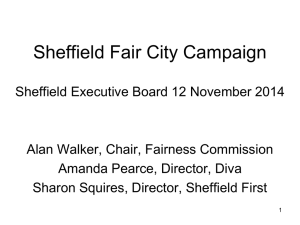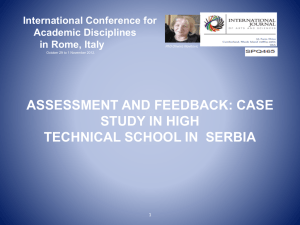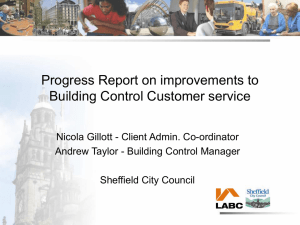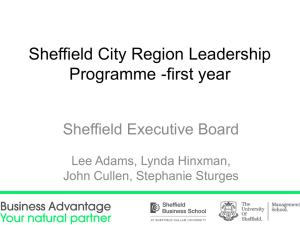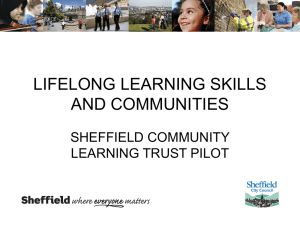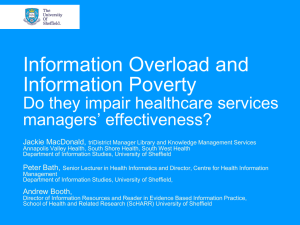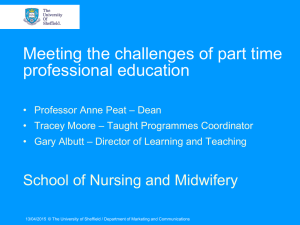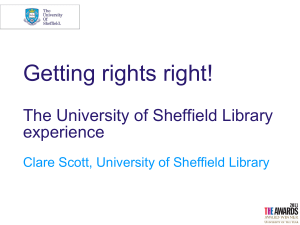What are we Remembering on Remembrance Sunday
advertisement
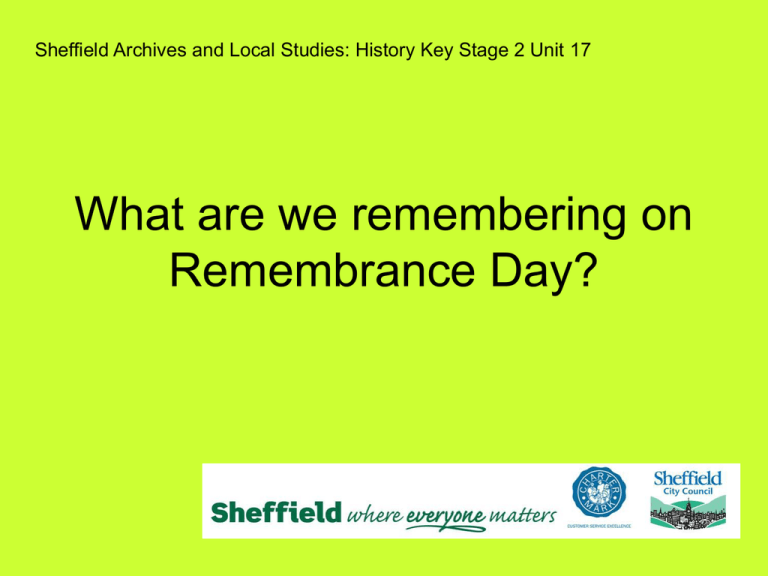
Sheffield Archives and Local Studies: History Key Stage 2 Unit 17 What are we remembering on Remembrance Day? The Poppy • In early November each year people wear the red poppy flower on their clothes. • What are they remembering? Remembering • The first poppies were worn after the end of World War One in 1918. This is a long time ago – almost 100 years. It can be difficult to remember things from long ago or even from yesterday – for instance, what did you have for breakfast last Tuesday? • Can you think of ways in which people remember important things? War Memorial 1 This is a picture of Sheffield’s main war memorial. It is outside the City Hall in the city centre. The picture was taken in 1925. • How many years after the end of the war is this? • Who do you think is watching this ceremony? • How do you think they may be feeling? War Memorial 2 There are many war memorials in Sheffield. The ones pictured here are Grenoside, Totley and Gleadless • Is there one near where you live? There might even be one inside your school. War Memorial 3 • These are war cemeteries in Serre and Bapaume in France. They commemorate Sheffield soldiers. • Why are they in France and not Sheffield? Casualties on the Battlefield • This is part of a Sheffield newspaper for November 1915. What can you find out about each soldier from reading this? Casualties in Sheffield • It wasn’t just soldiers who were affected by war. Here is a report of a Zeppelin raid on Attercliffe in September 1916. • What is a Zeppelin? • What had the boys been doing? What are these men doing? New Arrivals in Sheffield Some people in Belgium and France left their homes to escape the fighting. They came to live in Sheffield. Bus carrying Belgian casualties, Collegiate Crescent, Sheffield. New Arrivals in Sheffield This letter from 1914 records Mr Knowles letting people from Belgium live in his houses for free. Today people still come to Sheffield from other parts of the world where there is fighting. • Can you think of any countries they may come from? The End of the War This is a page from the Yorkshire Telegraph dated 11 November 1918. • What is it telling us? • What time of day did the war end? • What day of the month and in which month? Peace Celebrations 1 When the war ended there was great celebration. There were parties in parks and streets. High Hazels Park, Darnall Summer Street, Netherthorpe How did the children celebrate? Peace Celebration 2 The Lord Mayor was in charge of the celebrations. Look at the next two slides to see what celebrations took place. • Do you think everyone was happy? • How do you celebrate a special occasion? • Write down a few things you would do to celebrate that they wouldn’t have done in 1919. After the War World War One was described as ‘the war to end all wars’. • Have there been any wars since? Can you think of any other places where British men and women have gone to fight? Into the 21st century • Do you recognise this view of Sheffield City Centre? • What is it called? • Why do you think it is called this? The need for memorials goes on… What new memorials might be built in the future? Sheffield Archives and Local Studies If you prefer to use this presentation as a basis for a class visit to Archives and Local Studies or in a visit by us to your class please contact us. Students will have the opportunity to see and touch the original items. We offer • Access to original primary source material from Tudor times through to the 21st century. • Class visits to the Central Library and to Sheffield Archives. • Visits to schools to deliver classroom sessions. • Introductory sessions for teaching staff. • Online PowerPoint lesson resources. • Focus Packs of colour facsimiles linked to the National Curriculum. www.sheffield.gov.uk/archives
